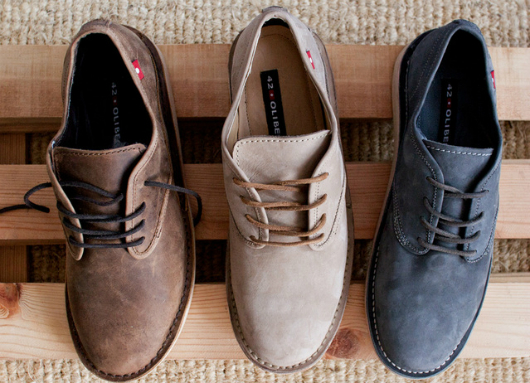Oliberté Delivers Quality Ethiopian Shoes

Although the average consumer would be willing to pay 15% more for a product to ensure it was not made in a sweatshop, doubling the salary of a sweatshop worker would only increase prices by 1.8%. It is surprising, then, that the shoe industry continues to support sweatshop conditions.
Many clothing brands have attempted to be a force for good. Footwear brand TOMS has become a major force for the “one-for-one” charitable model that has since been picked up by many brands. Nike, a brand notorious for its own labor violations, has engaged in a variety of charity products. These options are readily available, but for a brand that improves labor conditions and empowers workers in Africa, you cannot do better than Oliberté footwear.
Oliberté, which describes itself as “the world’s first Fair Trade Certified footwear manufacturing facility,” was founded by Canadian Tal Dehtiar, founder of MBAs Without Borders. Dehtiar describes his goal as not simply creating an ethical brand of African footwear, but creating a quality brand of African footwear. “We don’t want people to think of Africa as the next China. We want them to think of it as the next Italy,” he said.
With its stylish selection of shoes and footwear, along with its waterproofing “gorilla wax,” Oliberté does just that. All Oliberté shoes are made at a factory in Addis Ababa, Ethiopia. By working to increase employment and fair wages, along with improving working conditions at its own factory, the company supports breaking the generational cycle of poverty through social enterprise, a key point in its business plan.
Along with promoting ethical pay for workers in Ethiopia, Oliberté shoes are sourced from free-range cows, sheep and goats. This is very important for the many Ethiopians who remain economically independent on livestock.
Stylish, sturdy and ethical, Oliberté shoes are not simply a footwear brand but a new perspective on Africa. Instead of casting Africa as weak and hopeless, the brand supports empowerment that goes beyond the traditional white savior narrative of many brands working in the region. And the shoes feel great.
– Andrew Michaels
Sources: Good, Stand 4, Oliberté, Oliberté 2
Photo: Atelier Fifty Five
